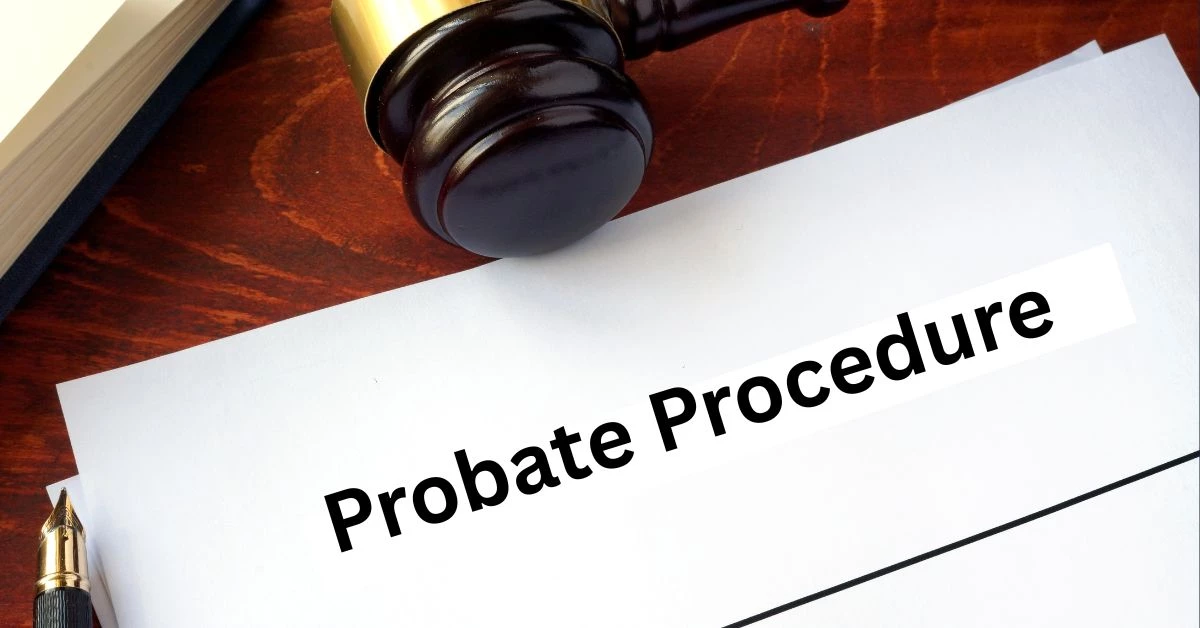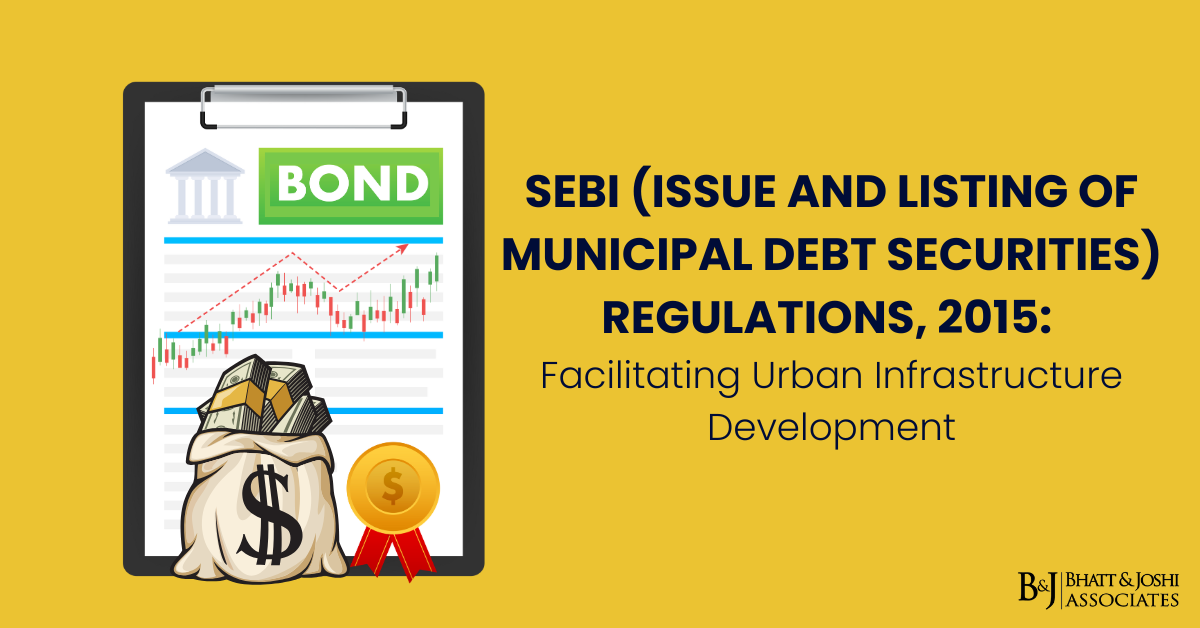Introduction
Probate law represents one of the most critical aspects of inheritance jurisprudence in India, governing the validation and execution of testamentary documents after the demise of a testator. The Indian Succession Act, 1925, defines “probate” as the copy of a will certified under the seal of a court of competent jurisdiction with a grant of administration to the estate of the testator [1]. This legal mechanism ensures orderly succession and protects the interests of beneficiaries while safeguarding against fraudulent claims and invalid testamentary instruments through a structured probate procedure.
The significance of probate extends beyond mere procedural compliance; it serves as the judicial stamp of authenticity on a deceased person’s final wishes. During probate proceedings, under Section 61 of the Indian Succession Act, 1925, the court examines the validity of the will, ensuring it meets all legal requirements and is executed without undue influence or coercion [2]. This comprehensive examination protects both the estate and the rightful beneficiaries from potential disputes and ensures that the testator’s intentions are carried out precisely as documented.
Legal Framework and Statutory Provisions
The Indian Succession Act, 1925: Foundation and Scope
The Indian Succession Act of 1925, enacted on 30th September 1925, stands as a landmark piece of legislation that has remarkably shaped inheritance law in India. This comprehensive legal framework governs succession of property for individuals who are not governed by personal laws like Hindu, Muslim, or Jain laws, laying down rules for both testamentary succession (based on a will) and intestate succession (when no will exists) [3].
The Act’s jurisdiction extends across diverse communities, primarily applying to Christians, Parsis, Jews, and other communities, while Hindus, Muslims, Buddhists, Sikhs, and Jains remain governed by their respective personal laws, except in specific circumstances outlined in the Act. The Indian Succession Act 1925 deals with two categories of succession in India: testamentary succession and intestate succession [4].
Definitional Framework Under the Act
The Act provides comprehensive definitions that form the foundation of probate law. A “Will” is defined as the intention of a testator in the form of a legal declaration, concerning their property, desiring to be put into effect after their death [5]. This definition emphasizes the testamentary nature of the document and its posthumous operation.
Section 2(f) defines the word “probate” to mean the copy of a will certified under the seal of a Court of a competent jurisdiction with a grant of administration to the estate of the testator. Section 2(h) defines the word “will” to mean the legal declaration of the intention of a testator with respect to his property which he desires to be carried into effect after his death [6].
Mandatory Probate Requirements
Territorial Limitations and Applicability
One of the most significant aspects of Indian probate law concerns its territorial application. Probate is mandatory only when wills are made within the geographical limits of Kolkata, Chennai (Madras), or Mumbai, or when the will involves immovable property situated in these cities [7]. This geographical restriction stems from historical precedents established during the British colonial period.
Under the Indian Succession Act 1925, probate is mandatory when all the following conditions are fulfilled: (i) A Will within the geographical limits of the state of West Bengal and municipal limits of the metro cities of Chennai and Mumbai, (ii) The Will is made by a Hindu, Jain, Sikh or Buddhist residing in the state of West Bengal, Chennai or Mumbai, and (iii) The Will deals with movable and/or immovable property situated in the state of West Bengal, Chennai or Mumbai [8].
Constitutional Validity and Legal Challenges
The constitutional validity of Section 213 of the Indian Succession Act was challenged in Clarence Pais & Ors. v. Union of India, wherein the validity of Section 213 was challenged as unconstitutional and discriminatory against Christians. The Supreme Court held that a combined reading of Sections 213 and 57 of the Act shows that where the parties to the Will are Hindus or the properties in dispute are not in territories falling under Sections 57(a) and (b), sub-section (2) of Section 213 applies and sub-section (1) has no application [9].
Detailed Probate Procedure
Initiating Probate Proceedings
Application for probate or for letters of administration, with the will annexed, shall be made by a petition distinctly written in English or in the language in ordinary use in proceedings before the Court in which the application is made, with the will annexed, and stating: (a) the time of the testator’s death, (b) that the writing annexed is his last will and testament [10].
The petition must contain comprehensive details about the deceased, the nature of assets, and the executor’s authority. The executor of the will is required to file a petition and the original will to the court for grant of probate. In the petition, the executor (who will be the petitioner in the case) has to mention the names and addresses of the deceased’s legal heirs [11].
Court Fees and Documentation Requirements
The probate procedure involves specific documentation and fee structures that must be followed diligently. The petitioner is required to furnish appropriate stamp paper equivalent to the requisite court fee along with the application. The cost of obtaining a succession certificate in India varies depending on the value of the deceased person’s estate and the respective state’s regulations—usually ranging from 2% to 5% of the estate value. Additional expenses may include stamp duty, legal fees, and newspaper publication costs [12].
Notice and Objection Procedure
After receipt of the petition, the court issues notice to the next of kin of the deceased to file their objections, if any, to the grant of probate. The court issues a notice to heirs and interested parties, providing them with the opportunity to contest the will if they have objections [13].
The notice procedure serves dual purposes: ensuring transparency in the process and providing interested parties an opportunity to raise legitimate objections. A general public notice is also published in newspapers to alert potential claimants or interested parties about the probate procedure.
Evidentiary Requirements and Proof Standards
Proof of Death
Proof of death is usually shown by submission of original death certificate. If a person was killed in an action while serving in armed forces, the official notification may be produced in proof of death of the testator. Where there is an air crash or sunk ship on the high seas and there is no possibility of survival and a person’s body is not recovered the court may take notice of the occurrence and be satisfied regarding the fact of death [14].
The law recognizes various forms of proof depending on circumstances. In cases of missing persons, where a person disappears or is missing, such a person as per law is presumed to have died if he is not heard of for a period of seven years [15].
Validation of Will Execution
Under section 63, every will is required to be attested by two or more witnesses, each of whom has seen the testator sign or affix his mark to the will. Section 61 inter alia states that a will obtained by fraud, coercion or undue influence which takes away the volition of a free and capable testator, is void [16].
The court examines multiple aspects during validation, including the testator’s mental capacity at the time of execution, proper attestation by witnesses, and absence of undue influence or coercion. These requirements ensure that the will genuinely reflects the testator’s intentions.
Jurisdictional Considerations in Probate Procedure
Territorial Jurisdiction of Courts
A probate application must be made to a District Judge (or District Delegate as the case may be) in whose territorial jurisdiction, the testator had a fixed place of abode right before his/her death. However, if the testator had assets located outside the State, whose value is more than certain threshold amounts, the application must be made to the High Court instead [17].
The competent court to file probate proceedings is the district court of the city/town where the deceased lived at the time of death. The High Courts of Bombay, Calcutta and Madras have jurisdiction to decide the probate petition [18].
High Court Jurisdiction and Powers
High Courts also exercise concurrent jurisdiction in all matters relating to probate. Nevertheless, apart from the High Courts of Kolkata, Chennai, and Mumbai, all other High Courts, in terms of section 300(2), may only receive probate applications if they have been so empowered by an official state gazette notification [19].
Landmark Judicial Precedents
Ravinder Nath Agarwal vs. Yogender Nath Agarwal (2021)
The Supreme Court in Ravinder Nath Agarwal vs. Yogender Nath Agarwal, dated 12.02.2021, held that “A cumulative reading of Sections 57, 213 and 264 would show: (i) that a person claiming to be an executor or legatee under a Will cannot rely upon the Will, in any proceeding before a Court of justice, unless he has obtained probate (if an executor has been appointed) or letters of administration with the Will annexed, if such a Will has been executed by certain classes of persons; and (ii) that the jurisdiction to grant probate or letters of administration vests only in courts located within the towns of Calcutta, Madras or Bombay and the Courts in any local area notified by the State Government in the Official Gazette” [20].
This landmark judgment clarified the territorial limitations of mandatory probate requirements and reinforced the statutory framework established under the Indian Succession Act.
M R Mohan Kumar & Others v. NIL (Karnataka High Court)
Recently, the Karnataka High Court in the matter of M R Mohan Kumar & Others v. NIL, heard about issuance of probate in the case where executor has not been named. Justice H P Sandesh ordered that “When the Will was executed in favour of the beneficiary, admittedly, no executor has been appointed and mere non-appointment of an executor cannot be a ground to reject grant of probate” [21].
This decision clarified a key element of the probate procedure, emphasizing that the absence of a specifically named executor does not automatically invalidate a will’s eligibility for probate.
Letters of Administration
Legal Framework and Application
Where the deceased was a Hindu, Muhammadan, Buddhist Sikh or Jain or an exempted person and has died intestate, the court may grant administration of his estate to any person, who according to the rules for the distribution of the estate applicable in the case of such deceased would be entitled to the whole or any part of such deceased’s estate [22].
Letters of administration entitle the administrator to all rights belonging to the intestate as effectively as if the administration has been granted at the moment after his death. They however do not render valid any intermediate acts of the administrator tending to the damage of the intestate’s estate [23].
Procedural Requirements for Letters of Administration
For obtaining a letter of administration the beneficiary has to apply to the court. The court on receiving satisfactory proof of valid execution of the will issues letter of administration to the beneficiary. The application for letter of administration has to contain the following details: the time of the testator’s death, that the writing annexed in his last will and testament, that it was duly executed, the amount of assets which are likely to come to the petitioner’s hands, and the petitioner is the executor named in the will [24].
Distinction Between Probate and Succession Certificates
Fundamental Differences
A probate differs from succession certificate. A probate is issued by the court, when a person dies testate i.e., having made a will and the executor or beneficiary applies to the court for grant of probate. In case a person has not made a will his legal heirs will have to apply to the court for grant of a succession certificate which will be given as per applicable laws of inheritance [25].
The main object of a Succession Certificate is to facilitate collection of debts on succession and afford protection to parties paying debts to representatives of deceased persons. The grant of a certificate does not establish title of the grantee as the heir of the deceased [26].
Practical Applications and Limitations
The succession certificate stands valid anywhere within India. However, where a certificate has been granted in a foreign country, by an Indian representative (as appointed by the government), accredited to that state, the certificate will stand valid only if properly stamped in accordance with the Court Fees Act, 1870 to have the same effect in India as a certificate granted in India [27].
Recent Developments and Amendments
Modernization of Probate Laws
Recent amendments to the Indian Succession Act aim to simplify the succession process and address emerging legal challenges. Notable developments include: Provisions for digital wills, which recognise the increasing digitisation of legal documents; Expedited probate processes, which streamline the time it takes to obtain probate and distribute assets; Enhanced protection for beneficiaries, which ensures that the interests of beneficiaries remain intact throughout the succession process [28].
Technological Integration
The legal system has begun recognizing the need for technological adaptation in probate procedures. Courts have started accepting digital documentation and implementing online filing systems to expedite the probate process while maintaining security and authenticity standards.
Challenges and Practical Considerations
Common Disputes in Probate Proceedings
Common challenges include validity of wills due to allegations of coercion or fraud, exclusion of heirs and claims by illegitimate children or distant relatives, and intestate succession conflicts involving disagreements over the distribution of property [29].
These disputes often arise from family dynamics, unclear will provisions, or challenges to the testator’s mental capacity at the time of will execution. Courts must carefully evaluate evidence and testimony to resolve such conflicts.
Procedural Delays and Solutions
The probate procedure in India, while clearly defined under the law, often gets prolonged due to delays in probate proceedings, arising from court congestion, complex documentation, and contested applications. The Act promotes the use of wills to prevent conflicts and ensures equal inheritance rights for men and women, aligning with constitutional values [30].
Protection of Estate During Probate Proceedings
Interim Protection Measures
Until probate is granted of the will of a deceased person, or an administrator of his estate is constituted, the District Judge, within whose jurisdiction any part of the property of the deceased person is situate, is authorised and required to interfere for the protection of such property at the instance of any person claiming to be interested therein [31].
This provision ensures that the estate remains protected during the pendency of probate proceedings, preventing waste, misappropriation, or deterioration of assets.
Powers of District Judges
For protection purposes, if the judge thinks fit, he may appoint an officer to take and keep possession of the property. This section shall not apply when the deceased is a Hindu, Muhammadan, Buddhist, Sikh or Jaina or an exempted person, nor shall it apply to any part of the property of an Indian Christian who has died intestate [32].
Rights and Obligations of Executors
Legal Standing and Authority
Section 211(1) declares that the executor or the administrator, as the case may be, of a deceased person is his legal representative for all purposes and that all the property of the deceased vests in him, as such. Under section 212, it is inter alia provided that no right to any property of a person who has died intestate can be established in any Court, unless letters of administration are granted by a probate Court [33].
Distinction Between Executors and Administrators
Sections 211, 212 and 213 bring out a dichotomy between an executor and an administrator. They indicate that the property shall vest in the executor by virtue of the will whereas the property will vest in the administrator by virtue of the grant of the letters of administration by the Court. These sections indicate that an executor is the creature of the will whereas an administrator derives all his rights from the grant of letters of administration by the Court [34].
Cross-Border Probate Issues
International Succession Matters
Succession to the immovable property in India of a person deceased shall be regulated by the law of India, wherever such person may have had his domicile at the time of his death. Succession to the movable property of a person deceased is regulated by the law of the country in which such person had his domicile at the time of his death [35].
This principle ensures clarity in international succession matters while respecting the territorial sovereignty of different legal systems.
Conclusion
The probate procedure under the Indian Succession Act, 1925, represents a sophisticated legal framework designed to ensure orderly succession while protecting the interests of all stakeholders. On the satisfaction that the will in question has been validly executed the court will grant probate to the executor named in the will [36]. The system, while rooted in colonial-era legislation, has evolved through judicial interpretation and legislative amendments to address contemporary challenges.
The Indian Succession Act (1925) stands as a vital piece of legislation governing the distribution of assets in India. It ensures that the succession process proceeds lawfully and fairly while safeguarding the rights of legal heirs and beneficiaries. Recent amendments have strengthened the Act, making it more relevant to contemporary legal challenges [37].
The territorial limitations of mandatory probate, the comprehensive probate procedure requirements, and the judicial oversight mechanisms collectively ensure that testamentary succession operates within a framework of legal certainty and procedural fairness. As India continues to modernize its legal infrastructure, the probate procedure must adapt to technological advances while maintaining its core function of protecting testamentary freedom and ensuring orderly succession.
The ongoing development of digital infrastructure, coupled with judicial reforms and legislative updates, promises to make the probate procedure more efficient and accessible while preserving the fundamental principles of justice and equity that underpin the Indian Succession Act, 1925.
References
[1] The Indian Succession Act, 1925, Section 2(f). Available at: https://indiankanoon.org/doc/1450343/
[2] Supreme Court Observer. Probate Process and Court Examination. Available at: https://www.drishtijudiciary.com/current-affairs/probate
[3] The LawGist. The Indian Succession Act, 1925. Available at: https://thelawgist.org/the-indian-succession-act-1925/
[4] E-Drafter. Indian Succession Act 1925 – Features & Differences. Available at: https://www.edrafter.in/indian-succession-act-1925/
[5] Samistilegal. Wills And Probate under Indian Succession Act, 1925. Available at: https://samistilegal.in/wills-and-probate-under-indian-succession-act-1925/
[6] Sarin Advocate. Probate of a Will. Available at: https://sites.google.com/site/sarinadvocate/indian-succession-act-1925/probate-of-a-will
[7] Bonumlex. Probate Territorial Requirements. Available at: https://bonumlex.com/probate-is-necessary-only-when-the-wills-are-made-within-the-territory-of-calcutta-madras-and-bombay/
[8] ClearTax. Probate Of a Will. Available at: https://cleartax.in/s/probate-of-a-will
[9] Lexology. Law of Probate of Wills in India. Available at: https://www.lexology.com/library/detail.aspx?g=9610281a-9343-4613-a4b4-547c553561de
[10] LawGist. Section 276 – Petition for probate. Available at: https://lawgist.in/indian-succession-act/276
[11] ClearTax. Probate Procedure. Available at: https://cleartax.in/s/probate-of-a-will
[12] ClearTax. Succession Certificate. Available at: https://cleartax.in/s/succession-certificate-format
[13] Drishti Judiciary. Probate Process. Available at: https://www.drishtijudiciary.com/current-affairs/probate
[14] Yellow Legal Services. Indian Succession Act 1925. Available at: https://www.getyellow.in/resources/indian-succession-act-1925-understanding-succession-laws-in-india
[15] LawCrust Legal Services. Indian Succession Act (1925). Available at: https://lawcrust.com/indian-succession-act/
[16] AZB Partners. Law on Will and Probate. Available at: https://www.azbpartners.com/bank/law-on-will-and-probate-a-brief-summary/
Authorized by Vishal Davda














